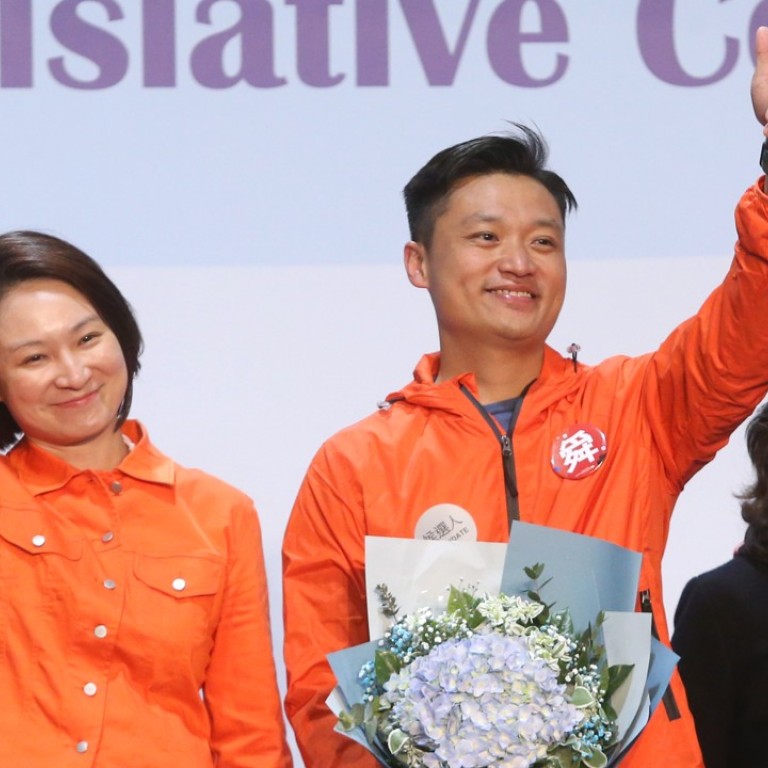
What happened to the disqualifications backlash? Five takeaways from Hong Kong’s Legco by-election
The pro-democracy bloc hoped for a bounce after the courts’ controversial unseating of their allies. But localist apathy and unorthodox campaigning contributed to a low vote share
That may not have worked out as the pan-democrats planned.
The bloc used to get roughly 55 to 60 per cent of votes in direct elections, but the tables were for the first time turned by the Beijing-friendly camp in Kowloon West, where the pro-establishment candidate got 49.9 per cent to his pro-democracy opponent’s 48.4 per cent.
Here are five key takeaways from the by-election.
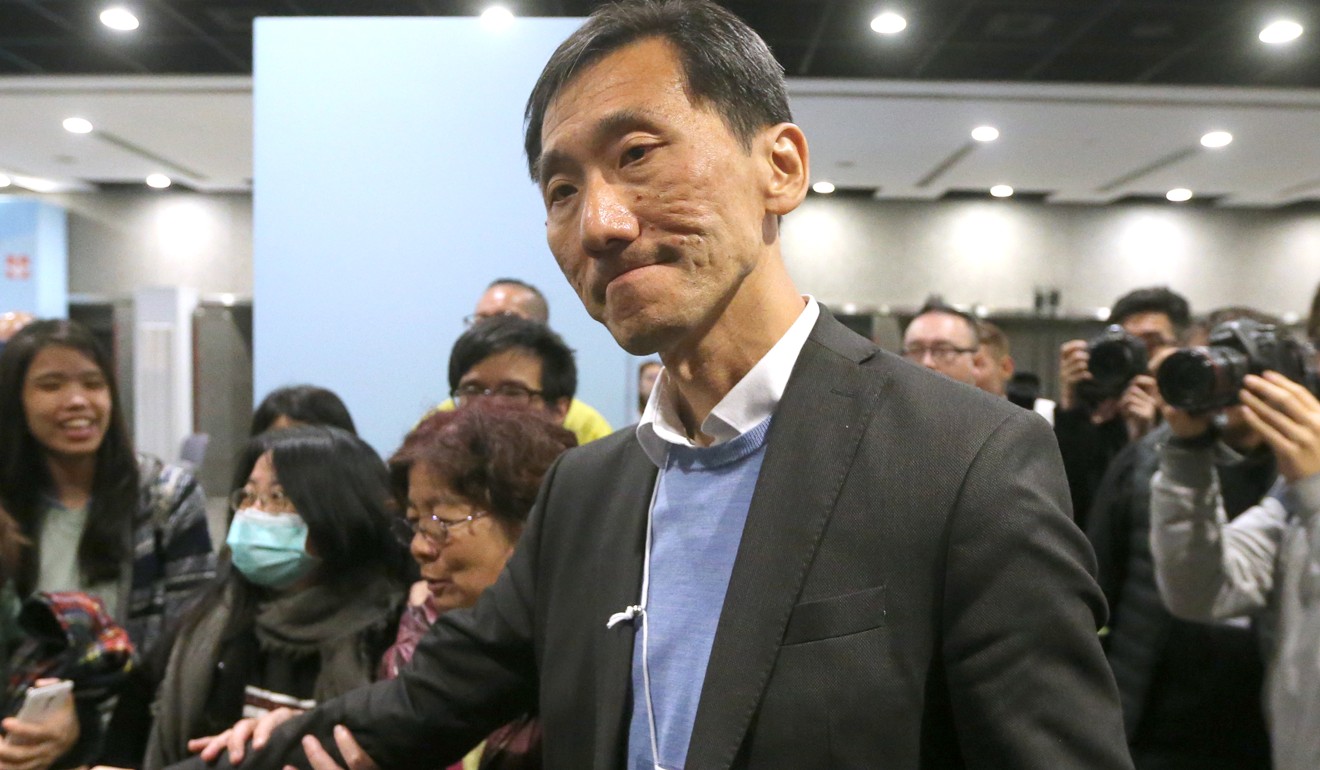
1. Did the disqualifications play a role in the by-election?
But the issue did not play as big a role in the outcome as had been expected, according to political scientist Dr Ma Ngok. Ma said the defeat of Edward Yiu Chung-yim – one of the ousted lawmakers – in Kowloon West had also dealt a blow to the bloc’s argument.
“It gives people an impression that some considerable number of voters in fact do not really care much about the disqualification,” he said.
New People’s Party chairwoman Regina Ip Lau Suk-yee said while the disqualification saga had created a backlash at the beginning, the factor had somehow been digested by the time polling started.
That muted response was reflected in the by-election’s relatively low turnout of just over 40 per cent. That figure had been 58.3 per cent for the 2016 general election and 46.2 per cent in the New Territories East by-election of the same year.
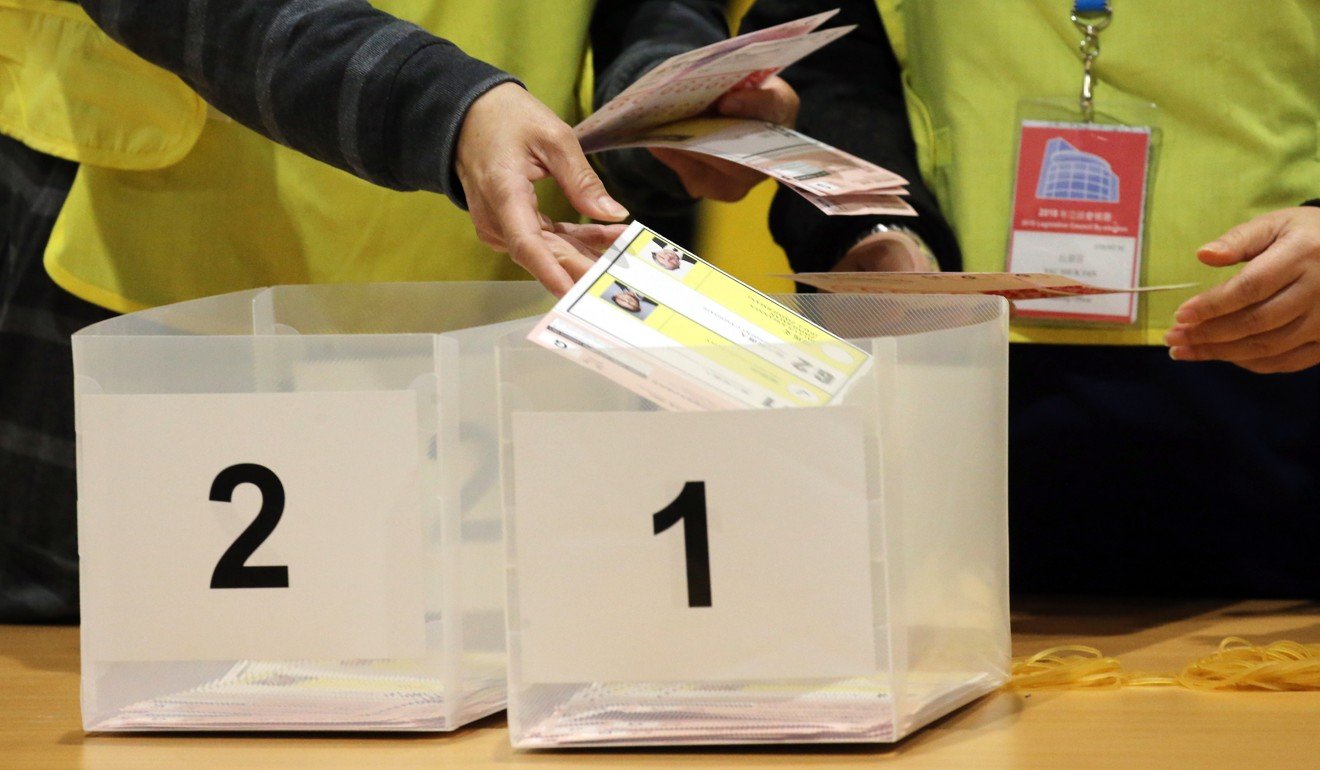
Pan-democrat convenor Charles Mok said the disqualifications were never the “only factor” voters considered. “If you talk about rule of law, or about monitoring the government, will voters have a better response?” Mok asked. “Maybe many are concerned with community issues.”
Speaking in Beijing, National People’s Congress (NPC) deputy and former chairman of the pro-establishment Democratic Alliance for the Betterment and Progress of Hong Kong (DAB) Tam Yiu-chung said his camp’s “breakthrough” victory in Kowloon West showed the disqualifications did not win the opposition too many sympathy votes.
“Society hopes for pragmatic and reasonable voices. The opposition’s filibustering tactics failed to win public support,” he said.
Tam said the chief of Beijing’s liaison office in Hong Kong Wang Zhimin congratulated him on the result during a morning meeting of the NPC Hong Kong delegation.
Liberals in Hong Kong fear for city’s future as China falls back on strongman rule
2. Edward Yiu a surprising loser in Kowloon West
Yiu on Monday became the first pan-democrat in history to lose a Legco by-election in a geographical constituency. Pan-democrats have always had the upper hand in geographical seats because of their wider support base, but Yiu’s defeat suggested their advantage might be shrinking.
The result was also a turnaround for both blocs’ fortunes in Kowloon West. At the 2016 general election pan-democrats won four of six seats there and 57.2 per cent of votes, way ahead of the conservatives’ 37 per cent.
[Yiu] has failed to garner support from the low-income voters, where the Democratic Party and Association for Democracy and People’s Livelihood have succeeded
But voting data suggests Yiu lagged his key rival Vincent Cheng Wing-shun, of the DAB, at most polling stations, though he did win in Mei Foo Sun Chuen, a middle-class residential district.
Ma attributed Yiu’s surprise reversal to his unconventional campaign, which included canvassing votes with a team of cyclists.
“He has failed to garner support from the low-income voters, where the Democratic Party and Association for Democracy and People’s Livelihood have succeeded,” he said.
Sources also suggested Yiu ditched the traditional practice of going door-to-door in public housing estates.
While Yiu – well known in the city after the disqualification saga – won a landslide victory in a primary to run in the by-election, Ma said the camp may have overestimated his popularity in the community. Yiu had only been working in the constituency a few months, whereas Cheng has been a Sham Shui Po district councillor since 2007.
3. Au Nok-hin beats pro-establishment rival Judy Chan – but with a thinner-than-expected majority
Au Nok-hin, the Southern district councillor endorsed by the pro-democracy camp, beat arch-rival Judy Chan Ka-pui on Hong Kong Island, but with only a small margin of 9,547 votes.
In the 2016 Legco election, the pro-democracy camp won 48 per cent of Hong Kong Island votes, moderate candidates got 12 per cent and the pro-establishment camp 40 per cent.
While Au managed to secure 50.7 per cent of votes this time, Chan’s share hit 47.2 per cent, implying moderate voters might have swung to the pro-establishment bloc.
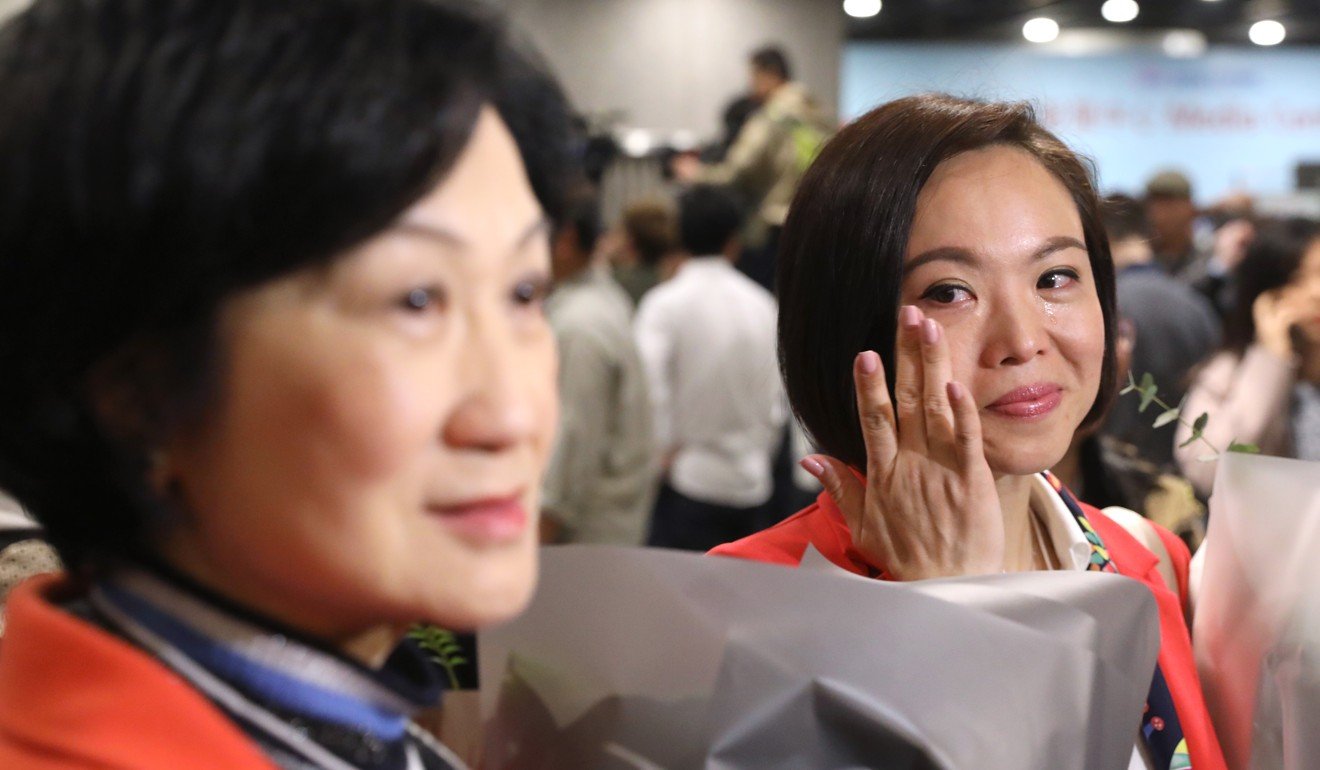
Both Chan and her party chairwoman Ip said they were satisfied with the results, as they had further narrowed the gap. Speaking after results came in, Ip cited her own by-election loss to former chief secretary Anson Chan Fang On-sang on the island, in 2007. Back then, Ip got 137,550 votes to Chan’s 175,874, and she said the pan-democrats had “underperformed” this time as Au only bagged 137,181 votes, 38,324 votes fewer than Anson Chan did then.
Au, who quit the Democratic Party last year, won in Central and Western district, a party stronghold. But he failed to win support in some of the public housing estates, where the DAB has an edge.
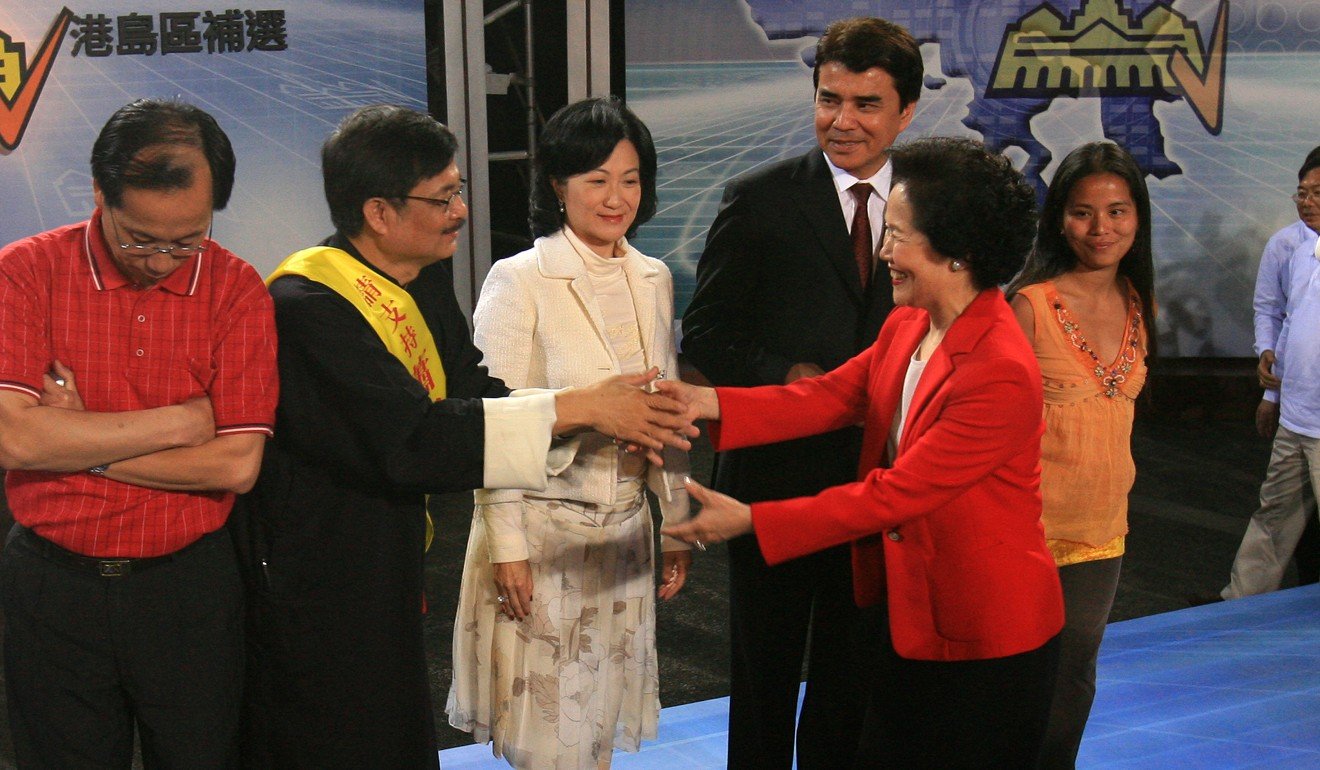
4. Where did the localist votes go?
Despite his victory in New Territories East, polling data suggests NeoDemocrat Gary Fan Kwok-wai managed to get the backing of only some – not all – localists.
In the 2016 by-election there for another seat, localist Edward Leung Tin-kei got 15.4 per cent of votes and the Civic Party’s Alvin Yeung Ngok-kiu got 37.2 per cent, a total of 52.6 per cent for the opposition. Pro-establishment candidate Holden Chow Ho-ding got 34.8 per cent.
In the same year’s general election, almost 47 per cent of New Territories East voted for pan-democrats, some 10 per cent backing localists, and 34.6 per cent backing the pro-establishment.
This year, Fan took 44.6 per cent, beating Bill Tang Ka-piu, who got 37.1 per cent. A remarkable 15.7 per cent went to independent candidate Christine Fong Kwok-shan.
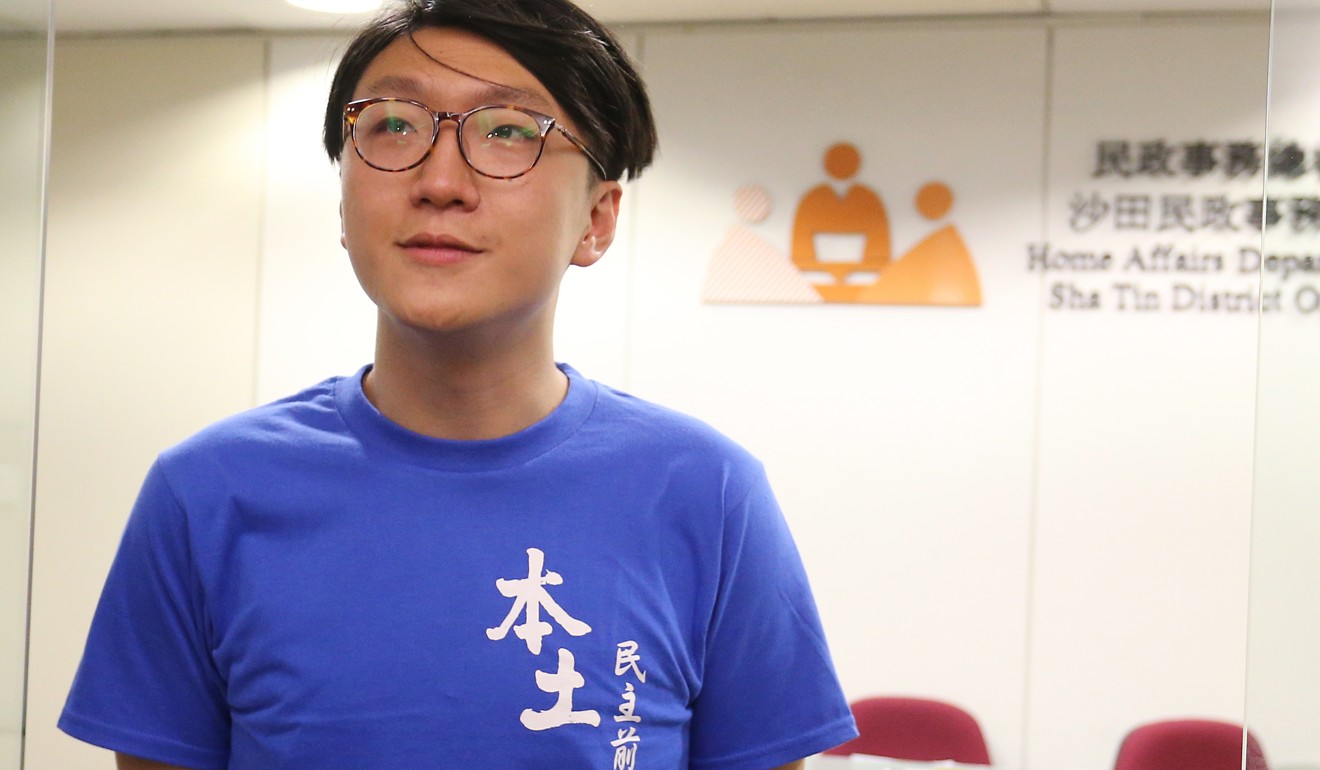
The total turnout of the by-election dropped by more than four percentage points against the 2016 by-election and 18.2 percentage points against the general election.
Ahead of the polls, some localist leaders urged supporters to adopt a “scorched-earth policy” by casting blank votes or not voting at all, rather than endorsing Fan, whom they said is not a true localist.
Dr Ma suggested Fan had only been able to secure some of the localist votes, but conceded it was tough for one person to appeal to voters across the pro-democracy spectrum in a first-past-the-post poll.
5. What are the implications for the pan-democrats?
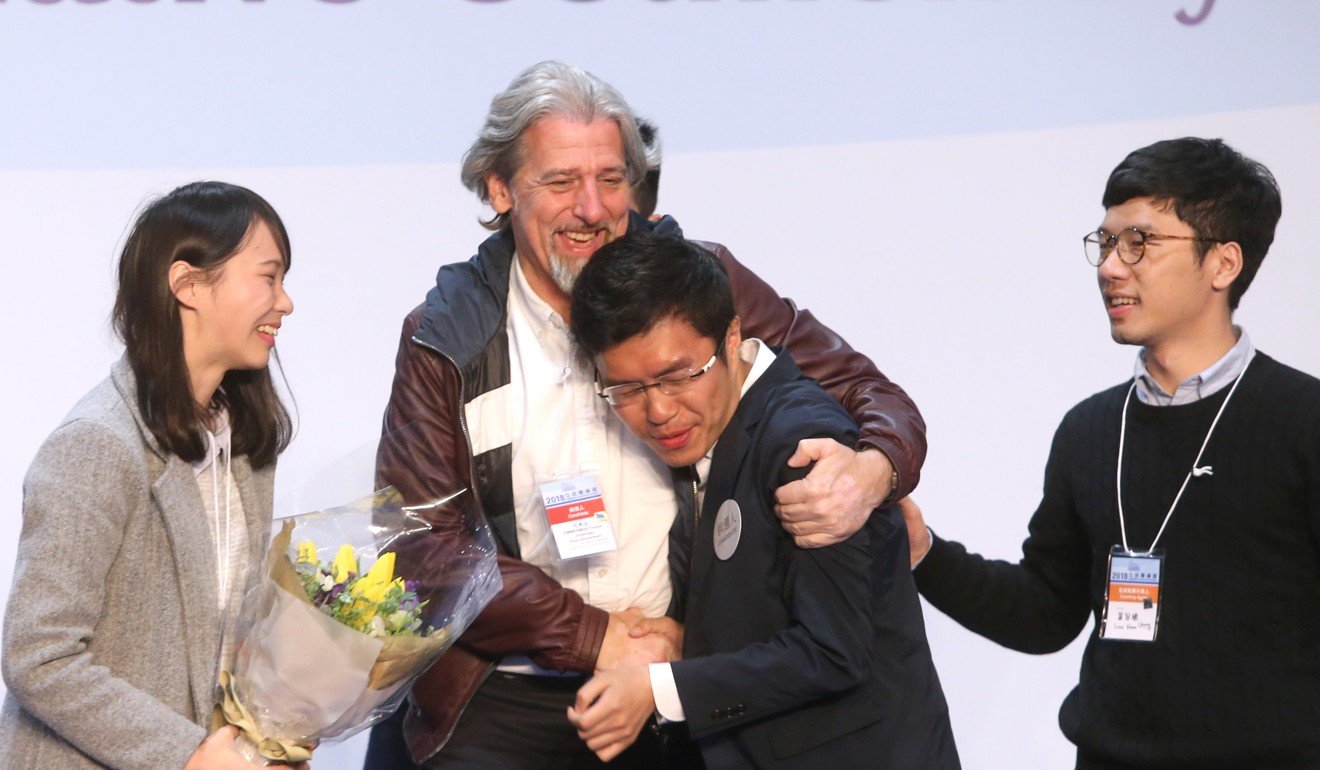
“That is very undesirable to us,” Mok said.
Ma said the pan-democrats’ defeat in the by-election could imply another tough battle awaits them when the next by-election rolls around.
Two other ousted lawmakers – “Long Hair” Leung Kwok-hung and Lau Siu-lai – have appealed against their disqualifications. If they lose, there will be another by-election.
Additional reporting by Sum Lok-kei

